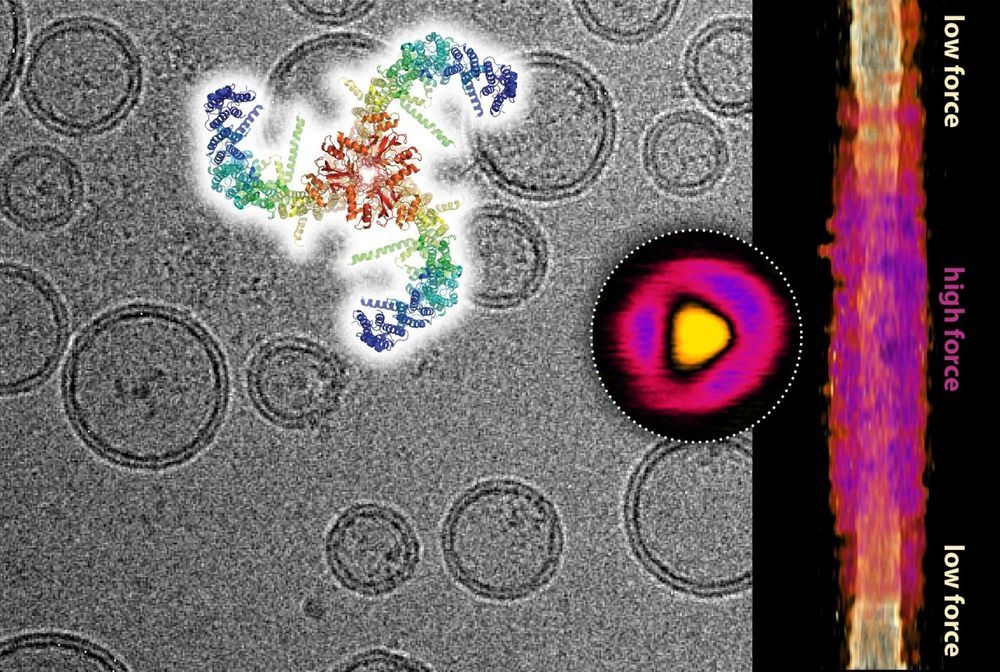Researchers from Weill Cornell Medicine and the Rockefeller University say they have uncovered the basic mechanism of Piezo proteins, which function as sensors in the body for mechanical stimuli such as touch, bladder fullness, and blood pressure. The discovery opens up many new paths of investigation into the roles of Piezo proteins in human diseases and potential new therapeutic strategies, according to the scientists.
In the study (“Force-induced conformational changes in PIEZO1”), published in Nature, the team used advanced microscopy techniques to image the Piezo1 protein at rest and during the application of mechanical forces. They confirmed this complex protein’s structure and showed essentially how it can convert mechanical stimuli into an electrical signal.
“Piezo1 is a mechanosensitive channel that converts applied force into electrical signals. Partial molecular structures show that Piezo1 is a bowl-shaped trimer with extended arms. Here we use cryo-electron microscopy to show that Piezo1 adopts different degrees of curvature in lipid vesicles of different sizes. We also use high-speed atomic force microscopy to analyze the deformability of Piezo1 under force in membranes on a mica surface and show that Piezo1 can be flattened reversibly into the membrane plane,” the investigators wrote.
